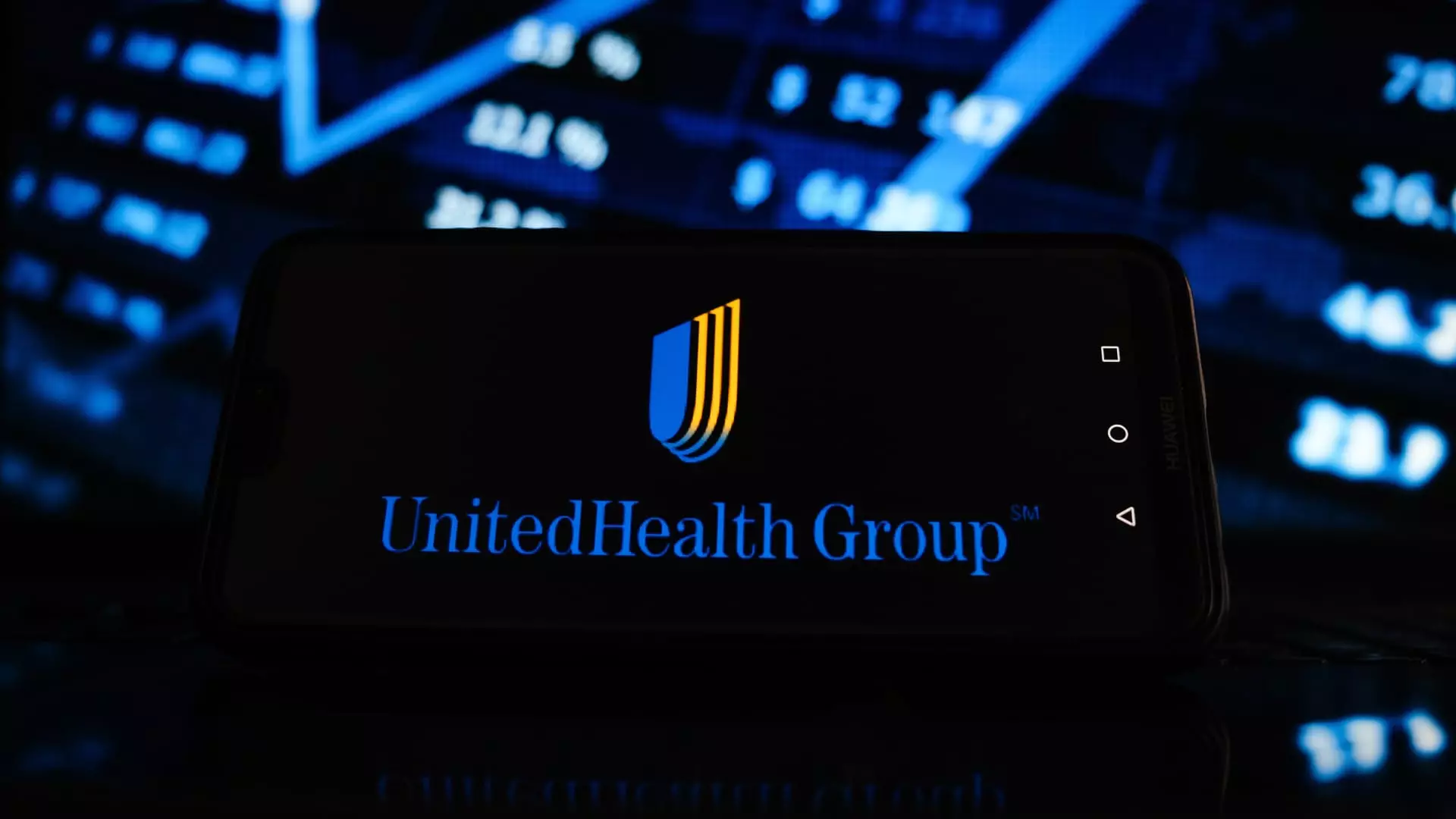UnitedHealth’s plummet this past week, amidst a broader stock market rally, raises an eyebrow and a critical question about the sustainability of health insurance stocks. While the S&P 500 celebrated a robust weekly gain of 5.3%, UnitedHealth’s shares descended dramatically, marking the company as an outlier during this otherwise upbeat financial period. This divergence is not merely a statistical anomaly; it indicates a fundamental weakness within the company, exposing vulnerabilities that investors can no longer afford to overlook.
The dissatisfaction surrounding UnitedHealth is deeply rooted in its operational integrity. Just days ago, the Wall Street Journal broke the distressing news of a criminal investigation launched by the Department of Justice regarding potential Medicare fraud. The revelation is alarming, signaling to investors that the blooming metrics of profitability may disguise deeper operational faults. With a 23% drop, the insurer set new five-year lows, reinforcing skepticism among investors desperate for clarity. This stark drop provides a poignant reminder: profit margins and stock prices can be divorced from reality, especially when compliance comes into question.
The Short-Term Sentiment and Long-Term Risks
The recent surge in stock price for broader markets can often lead to frenzied trading behavior, with investors keenly chasing momentum. UnitedHealth’s desolate Relative Strength Index (RSI) of 14.9—a figure that categorizes it as historically oversold—might suggest an imminent rebound. However, this superficial indicator should not console investors who are confronted with the harsh realities that lie beneath the surface. The RSI may reflect a short-term trading sentiment, but it is not a reliable gauge for long-term investment viability, especially considering the looming investigations and lost credibility surrounding the firm.
Strikingly, even with these concerns, analysts retain a “buy” rating and a staggering 64% upside target based on recent assessments. This disconnect between expert optimism and operational realities feeds into a narrative that investors should approach with caution. It raises concern over whether they are basing their strategies on trends that may be artificially inflated in the face of troubling fundamentals.
A Cautionary Tale from the Medicare Space
UnitedHealth’s downward spiral began shortly after it revised its annual profit forecast downward, attributing the grim outlook to unexpectedly high medical costs in its Medicare sector. This recalibration of expectations showcases a level of operational mismanagement that cannot be overlooked. As healthcare costs surge, the Medicare segment, which once held promise, could become a significant liability if not adequately managed.
For those keen on the health insurance sector, UnitedHealth should serve as a warning beacon: companies handling sensitive health data and government contracts are under scrutiny. This scrutiny translates into not only reputational damages but also financial penalties that can cripple a company’s bottom line.
Interestingly, a brief rebound was noted on the last trading day of the week, attributed to some insider buying. However, a temporary spike does not erase the fundamental hurdles facing the company. Investors must analyze the business model, which appears increasingly outdated in the wake of shifting healthcare landscapes and regulatory frameworks.
A Wake-Up Call for Investors at a Threshold of Change
UnitedHealth’s current predicament should serve as a clarion call for investors who rely on superficial indicators and gestural rebounds. The sudden surge in the stock market is often transient; a healthy market can obscure underlying problems that may resurface when the momentum shifts. In this volatile atmosphere of rising inflation and potential recessions, a sober assessment of risk is critically important.
While sectors like technology may boast stocks with soaring valuations, UnitedHealth’s challenges reveal the dangerous undercurrents in the health insurance business. The recent optimism surrounding companies like Microsoft and Broadcom highlights an essential disparity; their growth happens within the frame of innovation rather than through the antiquated systems that still govern other industries.
In a landscape where good governance is increasingly paramount, one must ask: Is UnitedHealth a company poised for recovery, or is it merely a cautionary tale for investors navigating a complex and sometimes perilous market?

